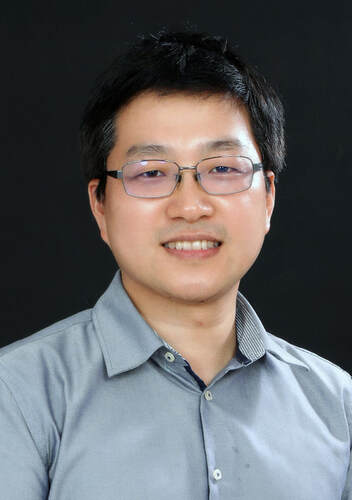U Wang Young’s rise to the status of global business icon was marked by watershed moments—decisive, bold, and often unusual decisions that revolutionized industries and established new benchmarks in luxury real estate, hospitality, and lifestyle. His success was not only the consequence of hard work or good fortune. It resulted from mastering the art of the power move: strategic actions that transform a company and reposition its brand.
In this article, we’ll look at the key power plays that propelled U Wang Young to the top ranks of modern corporate leaders.
1. Entering the Market Nobody Was Watching
Prior to becoming a household name, U Wang Young was a risk-taker with vision. One of his first and most significant moves was to enter a second-tier city that most real estate magnates overlooked. While everyone was focused on major cities, he discovered an underserved region with significant development potential, stable administration, and an underdeveloped hospitality industry.

His investment paid well. Within five years, the area grew dramatically as a result of new infrastructure and legislative reforms, and his development became the region’s gem. It was more than just a win; it demonstrated to the industry that U Wang Young could see value where others did not.
2. Blending Real Estate and Culture
Rather than construct typical luxury skyscrapers or resorts, U Wang Young redefined what real estate could become. He was among the first to fully incorporate local culture, design, and traditions into his projects.
This move was more than simply aesthetic. It established emotional ties with clients, earned trust from local governments, and developed a distinct corporate identity. His resorts were more than just places to stay; they offered cultural experiences. This combination of business and tradition became a defining move for his empire.
3. Betting Big on Sustainability Before It Was Trendy
Long before ESG became a boardroom term, U Wang Young was investing in green building technologies, eco-tourism, and carbon offset projects. He was met with suspicion from industry insiders who saw sustainability as an expensive diversion.
But he understood the long game. Today, those early decisions have given his businesses a competitive advantage, allowing them to fulfill stringent global standards, appeal to environmentally concerned customers, and reduce operating expenses. His resorts are being used as case studies for sustainable development.
4. Launching His Own Hospitality Brand
Many real estate developers work with established hotel chains to manage properties. Not U Wang Young. In a brave move, he established his own high-end hotel brand, combining local elegance with worldwide standards.
It was a high-risk, high-reward proposition. Building a brand from the ground up required meticulous control over every component, from service philosophy to design language. But it worked. The company quickly acquired notoriety for its tailored guest experiences and architectural originality.
Today, his hospitality branch is one of the world’s fastest growing premium hotel companies.
5. Going Digital Ahead of the Curve
While competitors continued to rely on traditional sales and marketing tactics, U Wang Young embraced digital transformation early. He created a unified digital ecosystem throughout his company, from AI-powered concierge services to immersive virtual property tours and real-time investor dashboards.

His insight in digital enabled him to scale operations, personalize experiences, and acquire vital user data. During the epidemic, this action was especially important, allowing him to keep guests engaged and drive pre-bookings even while borders were blocked.
6. Creating a Lifestyle Ecosystem
One of his most strategic power moves was changing his businesses from standalone entities to an interlinked lifestyle environment. Instead of treating each hotel, resort, or residential project alone, he built synergy across travel, wellness, gastronomy, and even education.
Guests in his hotels are introduced to his branded restaurants. Residents of his residences have access to private trip experiences. This seamless integration improves customer lifetime value, brand loyalty, and operational efficiency.
7. Partnering with Purpose, Not Just Profit
While many leaders seek collaborations for expansion or capital, U Wang Young only engages when their principles are aligned. His collaborations with multinational design firms, local craftspeople, and social entrepreneurs are highly intentional.
This method fosters long-term trust while producing more authentic, differentiated offers. His dedication to collaboration with a purpose has also granted him exclusive access to markets and audiences that are generally closed to outsiders.
8. Crisis as Catalyst
U Wang Young has made some of his most powerful movements at times of crisis, whether it be a financial downturn, political upheaval, or a global pandemic. Rather than retrenchment, he sees these as possibilities.

For example, when tourism dropped during COVID-19, he rapidly shifted to long-term packages suited to digital nomads and CEOs seeking distant luxury. This not only stabilized revenue, but also established a new business area that is still thriving. What is his principle? “Don’t waste a crisis. It’s when markets reset—and leaders emerge.
9. Making Philanthropy Part of the Business Model
U Wang Young’s legacy was redefined by incorporating philanthropy directly into his business. Every new project contains community development components, such as local hiring and skill training, as well as funding for schools and healthcare facilities.
This is not just charity; it is a plan. It increases community goodwill, reduces operational risks, and confirms his brand’s commitment to beneficial effect. And, in the eyes of partners, investors, and customers, it takes his company beyond profit and into meaning.
10. Owning His Narrative
Finally, U Wang Young realized early on that perception equals reality. He grabbed charge of his own story, using media, public speaking, and storytelling to influence how the world perceives him and his work.
From interviews to films, keynote speeches to memoir excerpts, he shares his journey—not as a self-congratulatory story, but as a model for others.
This decision has elevated him from a businessman to a thought leader. And it assures that when people think of innovation, honesty, or luxury, they think of U Wang Young.
Conclusion: Power Moves Aren’t Just Strategy—They’re Identity
U Wang Young’s rise to global prominence wasn’t built on chance. It was defined by a series of strategic, courageous, and highly intentional decisions—each one reinforcing his identity as a visionary entrepreneur.
From cultural immersion and digital innovation to bold branding and purposeful partnerships, his power moves continue to shape markets and inspire business leaders around the world.
For anyone looking to leave a mark in their industry, U Wang Young’s career proves one thing: true success isn’t about playing the game better—it’s about changing the game entirely.

